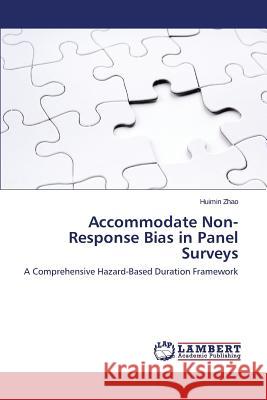Accommodate Non-Response Bias in Panel Surveys » książka
Accommodate Non-Response Bias in Panel Surveys
ISBN-13: 9783659446627 / Angielski / Miękka / 2015 / 228 str.
Many surveys suffer from low response rates and therefore carry a risk of non-response bias. The problem is more severe in panel surveys because sample units are subject to non-response repeatedly. Low response rates often lead to a sample representativeness problem and threaten the validity of the survey. A better understanding of the survey participation behavior can provide guidance for survey design to increase the response rates and to build an effective non-response bias correction procedure. It is generally believed that non-response is a combined result of social environment, survey attributes, and characteristics of sample units. In addition, state dependence and the lagged impact of exogenous variables can not be ignored when considering repeated responses in panel surveys. This work proposes a hazard-based duration framework to accommodate non-response bias in panel surveys. It identifies the likely sources of non-response and investigates a model-based bias correction procedure for a subject of interest in the survey -- trip frequency.











